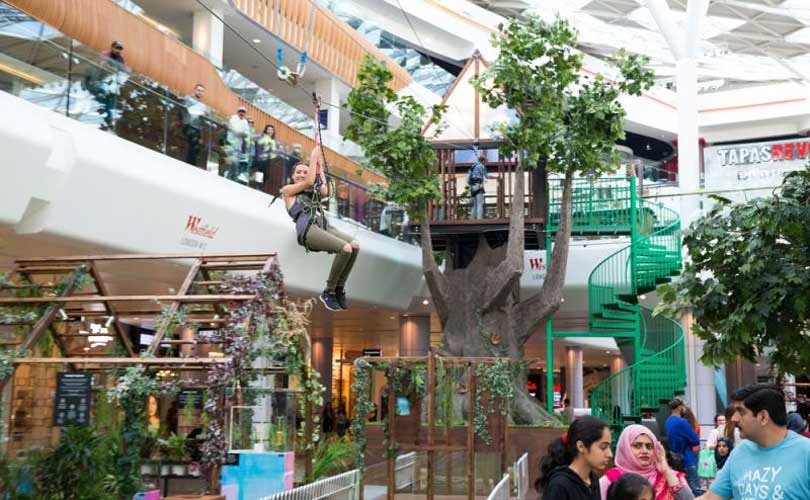Fifty major retail landlords in the UK, including mall giant Hammerson, may soon start basing retailers’ rents on their online sales as well as in-store sales and footfall, according to a recent article in Charged Retail. The plan will lower base rates by at least 30 percent but add a “top up” based on both in-store and online sales.
From the landlords’ perspective, the move is justified by the idea that the mall itself is a marketing tool, helping you become more successful not just because of the in-store experience, but also as a brand multiplier that gets people to buy online.
But is that true? Are malls really in the business of attracting traffic for their retailers?
Far too many of them are following the Field of Dreams strategy, expecting customers to show up just because they’re there.
Customers only show up if you’re offering something they can’t get anywhere else. There’s a reason we have luxury car brands — there are cheaper and more convenient ways to travel, but the luxury car brand provides an experience that aligns with the customer’s brand.
And the vast majority of malls haven’t been able to pull that off for their shoppers.
Some have succeeded: Istanbul’s Grand Bazaar is a tourist destination, and New Jersey’s American Dream mall draws shoppers with everything from a water park to an indoor ski resort. But that’s the point — to do so, they have to provide an experience that customers can’t get online or from a discount retailer.
Why does a customer go into a Coach store instead of buying a Coach bag online? Maybe she wants to pick up the bag and feel it before buying it, or maybe she knows she wants a Coach bag but isn’t sure which one — so she’d like to interact with an attentive and sophisticated staff who can usher her into the brand experience.
And here’s the thing: thanks to the real estate portfolio you’ve built over the years, you’re in a unique position to offer your customers that kind of experience.
If you do so, that’s one way Amazon and other online retailers won’t be able compete with you. How do I know? Warby Parker, Casper, and other online direct-to-consumer brands are now working hard to stop being online-only and build a retail presence.
And you’re way ahead of them.
Your real estate portfolio is an asset, not an albatross — and you have a responsibility to make good use of it.
Cycling clothing retailer Rapha is a great example of that, with stores they call Clubhouses that serve as meeting places for cyclists, offering food, events and group rides. People go to there not just to buy gear, but because it’s where their cycling community meets up — and sure, they just might buy things while they’re there.
Rapha is targeting a small subset of the population, but it’s their population. And they’re able to build meaningful loyalty with that particular group because they’re providing them with an experience they can’t get anywhere else.
No link on Amazon can compete with the experience of sitting around a table with your mates, sharing a pint after riding 40 kilometers together, and talking about what new freewheel you should buy. Browsing a catalog on your phone is never going to beat learning about the best cycling kit from a salesperson who rides 100 miles more a week than you do, is passionate about cycling, and is excited to share his knowledge with you.
Rapha knows what their audience wants and needs, and they’re very responsive to it. They have a curated selection of merchandise available in-store that’s branded theirs — and when you wear it, you’re showing everybody that you’re part of a select group of cyclists that gets to participate in this.
It’s not very different from a pro shop at a country club. People don’t think, “I’m going to go to the local country club and pick out golf clubs,” but they do play golf for a while, sit down and have a steak, and then buy new clubs because they feel like it.
It’s the experience that drives the consumption, not the other way around.
It’s things like that, building your brand in ways that are meaningful to your customers, that are going to make a difference for you — not paying a mall owner rent from your online presence in the hope that a few shoppers might wander into your store.
If you’re struggling to find a way to build a meaningful experience that resonates with your brand, The Industrious can help you.

